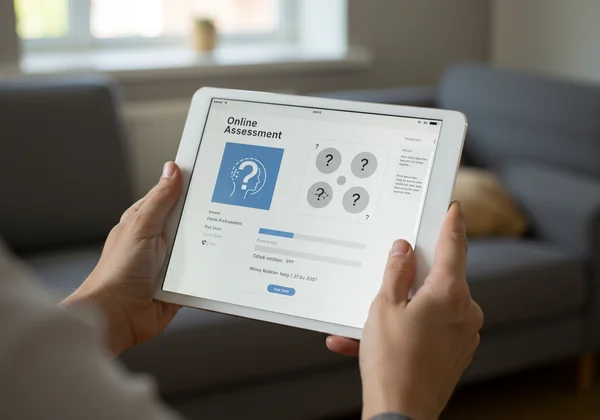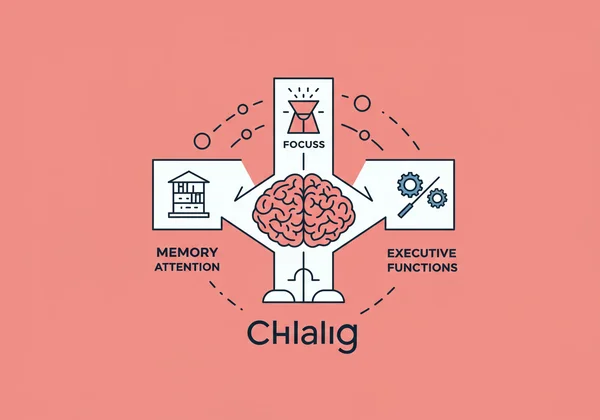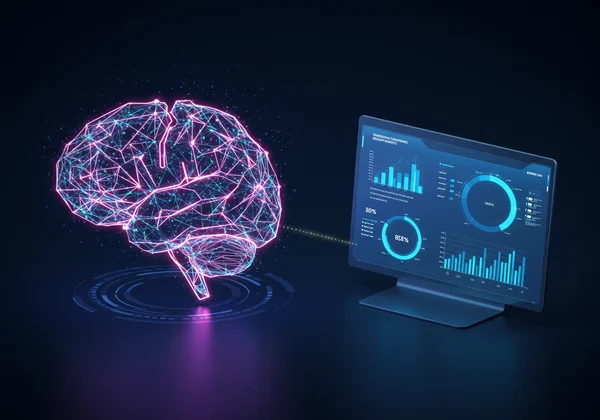What Is a Cognitive Assessment? A Guide to Your Brain's Core Skills
July 27, 2025 | By Gideon Albright
Have you ever wondered what powers your ability to learn a new language, remember a cherished moment, or focus on a task in a bustling coffee shop? The answer lies in your cognitive skills—the core mental processes that act as the engine of your mind. Understanding these abilities is key to unlocking your full potential.
A cognitive assessment provides a structured evaluation of these skills, offering a clear window into your mental performance. It’s not just about what you know, but how you think, learn, and solve problems. Gaining insight into your unique cognitive profile is an empowering journey of self-discovery. By understanding your strengths and weaknesses, you can take targeted steps to enhance your mental sharpness. A great place to start is with a comprehensive online cognitive assessment designed to map your abilities.

Understanding Cognitive Skills: The Engine of Your Mind
Think of cognitive skills as the mental tools you use every moment of every day. They are the intricate processes that allow your brain to take in information, process it, store it, and use it to navigate the world.
These skills are not fixed; they can be understood and even strengthened over time. A cognitive skills assessment test helps to map out these abilities, giving you a clearer picture of your mental landscape.
The Everyday Impact of Your Cognitive Abilities
The everyday impact of your cognitive skills is profound. When you recall a friend's birthday, you're using your memory. When you follow a complex recipe, you're relying on your executive functions. Even holding a conversation in a noisy room requires sharp attention.
Strong cognitive abilities contribute to better performance at work, more effective learning, and richer social interactions. They are the invisible threads weaving the fabric of your daily experience.
Why Assess Your Cognitive Abilities?
The reasons for getting a cognitive assessment are diverse. For some, it’s about proactive brain health—getting a baseline to monitor changes over time. For others, like students or professionals, it’s about unlocking new strategies for learning and productivity.
An assessment can turn abstract feelings of being "sharp" or "distracted" into concrete, actionable data. A detailed cognitive ability assessment provides the clarity needed to take control of your mental well-being.
The Core Pillars of Cognition: Memory, Attention, and Executive Functions
Your cognitive abilities are built upon three core pillars: memory, attention, and executive functions. Each plays a distinct yet interconnected role in how you process information and navigate the world. A thorough cognitive assessment evaluates your performance in these key areas to create a complete picture of your brain health.

Pillar 1: Memory – Your Brain's Vast Information Archive
Memory is your brain's vast information archive, holding everything from personal life stories to the knowledge required to perform your job. It's a complex system responsible for encoding, storing, and retrieving information. A proper memory test can evaluate the different facets of this crucial function, helping you understand how efficiently your brain manages its archives.
Types of Memory: From Short-Term to Long-Term Storage
Memory can be broadly categorized. Short-term memory acts like a mental notepad, holding small bits of information for immediate use, like a phone number you've just heard. Long-term memory is the deep storage, where significant events, learned skills, and factual knowledge reside. Understanding the interplay between these systems is key. For those interested in a deeper look, a free cognitive assessment can provide valuable insights into your memory functions.
How Memory Influences Learning and Daily Tasks
Memory is the bedrock of learning. Without the ability to retain new information, acquiring new skills would be impossible. In daily life, it allows you to recall appointments, follow multi-step instructions, and maintain relationships. A regular brain health check can help ensure this fundamental system is operating at its best, supporting all your personal and professional endeavors.
Pillar 2: Attention – Directing Your Mental Spotlight
Attention is your brain's director, deciding where to aim your mental spotlight. In a world saturated with distractions, the ability to control this spotlight is more valuable than ever. It's the cognitive skill that allows you to select what to focus on and what to ignore, enabling you to concentrate, learn, and complete tasks efficiently.

Types of Attention: From Focused to Divided
Just like memory, there are different types of attention. Focused attention is what you use to concentrate on a single task, like reading this article. Divided attention allows you to multitask, such as talking on the phone while cooking. Sustained attention enables you to maintain focus over a long period. Each type plays a unique role in your ability to interact with the world effectively.
How Attention Impacts Daily Performance
The ability to focus is directly linked to performance in virtually every area of life. For students, it means better comprehension. For professionals, it translates to higher-quality work and greater productivity. Strong attentional control can reduce errors and improve safety. Understanding your attentional strengths can help you improve cognitive function and create an environment that maximizes your potential.
Pillar 3: Executive Functions – The Brain's Master Control System
If cognitive skills were an orchestra, executive functions would be the conductor. This set of high-level mental processes acts as the brain's master control system, managing and coordinating other cognitive abilities to achieve goals. They are crucial for navigating the complexities of modern life.
Core Executive Functions: Planning, Problem-Solving, and Self-Regulation
The core executive functions include several vital abilities. Planning involves creating a roadmap to achieve a future goal. Problem-solving is the ability to identify challenges and devise effective solutions. Self-regulation governs your ability to manage emotions, control impulses, and make thoughtful decisions. Together, these skills allow you to manage your life with purpose and adaptability. A good cognitive assessment for adults will evaluate these higher-order skills in detail.
Navigating Life with Strong Executive Functioning
Individuals with strong executive functioning tend to be more organized, goal-oriented, and resilient. They can adapt to unexpected changes, manage their time effectively, and make thoughtful choices. Whether you are a parent juggling schedules, a manager leading a team, or a retiree planning a new chapter, these skills are essential for success and well-being.
Taking the Next Step in Your Cognitive Journey
Understanding your cognitive profile is the first step toward enhancing your mental performance. The three pillars—memory, attention, and executive functions—work together to shape how you learn, work, and live. A detailed cognitive assessment provides the data-driven insights you need to identify your strengths and target areas for improvement.
By taking a proactive approach to your brain health, you can unlock new strategies for productivity and well-being. An AI-powered, multi-dimensional assessment can provide you with a detailed and personalized report. Discover your results and begin your journey to a sharper, healthier mind today.

Frequently Asked Questions About Cognitive Assessments
What is a cognitive assessment?
A cognitive assessment is a tool designed to measure different aspects of your thinking skills, such as memory, attention, problem-solving, and processing speed. It provides objective data on your cognitive strengths and challenges. Modern platforms like CognitiveAssessment.net offer an accessible, AI-powered way to get a comprehensive overview of your mental performance from the comfort of your home.
Why is understanding memory, attention, and executive function important?
These three areas are the pillars of your cognitive health. Understanding them is crucial because they directly impact your ability to learn, work, and manage daily life. By identifying your strengths and weaknesses in each area, you can develop targeted strategies to improve performance, boost your brain health, and enhance your overall quality of life.
How can I test my cognitive ability at home?
Testing your cognitive ability at home has never been easier or more reliable. Scientifically-designed online platforms provide a structured and comprehensive evaluation. For a test created by neuroscientists and AI experts, you can start your free test to receive a detailed, personalized report with actionable insights. Please remember, these tools are for informational purposes and do not provide a medical diagnosis.
What are examples of cognitive skills?
Cognitive skills include a wide range of mental processes. Key examples are remembering a grocery list (memory), focusing on a conversation in a loud restaurant (attention), planning a vacation (executive function), solving a puzzle (problem-solving), and quickly making a choice between two options (decision-making).
Can cognitive skills be improved?
Absolutely. The brain has a remarkable ability to adapt and change, a concept known as neuroplasticity. With targeted exercises, lifestyle changes, and consistent practice, it's possible to strengthen specific cognitive skills. A cognitive assessment is the perfect starting point, as it highlights which areas could benefit most from training, helping you to improve cognitive function effectively.